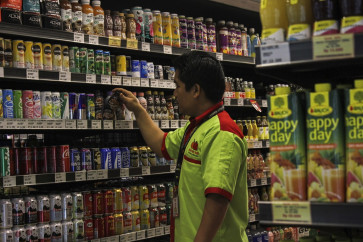Our Ocean Conference: Kerry warns ‘time is running out’
Former United States secretary of state and the initiator of the first Our Ocean Conference (OOC), John Kerry, gave a stark warning during his keynote speech on the opening day of the fifth OOC on Monday
Change text size
Gift Premium Articles
to Anyone

F
ormer United States secretary of state and the initiator of the first Our Ocean Conference (OOC), John Kerry, gave a stark warning during his keynote speech on the opening day of the fifth OOC on Monday.
“You don’t need to be a scientist or a leader of government to understand the reason dozens of nations are sitting here side by side. It is because time is running out,” he said.
He acknowledged that he was proud of many positive results achieved since the inaugural conference in 2014.
“It has become a movement with US$18 billion of funds committed and 3.8 million square miles of newly protected ocean, and we are still working,”
However, Kerry stressed that it was not the time to rest on our laurels, especially when all over the globe there is still too much money chasing too few fish. Pirate fishing, strip mining, pollution, plastic trash and ocean acidification are some of the most pressing problems that haunt the ocean.
“We started Our Ocean Conference not as an excuse to talk but as an exhortation to act, to break the mold, to bring people from across the world together to recognize our shared concerns, and to react to science, not ideology,” he said.
Kerry warned that a failure to radically step up the efforts to protect the ocean and recognize the intertwining fate of the ocean and climate change would have dire consequences.
“First, there will be no blue economy. There will be an unrecognizable fishing industry that will pit country against country and promote even more money-driven decision making than the one we face today.”
Second, Kerry pointed out that climate change has changed the basic chemistry of the ocean faster than it has in the last 50 million years. It threatens some marine life that may simply die out because it cannot survive in the very water that has nourished it since time began.
“There are more than 500 dead zones now, growing in number throughout the ocean, areas where life simply cannot exist and the damage has now reached such an extreme level that unless we change our practices by the middle of this century there will be more plastic in the water in the ocean than fish,” he said.
Promoting the switch to renewable energy sources as well as forging a better and more effective global cooperation are two things he identified as a solution.
Kerry urged people across nations to put pressure on corporations, public figures and their respective governments to abandon coal and embrace cleaner and renewable sources of energy, which in turn would significantly decrease CO2 emissions, thus putting a brake on the worsening climate change.
“Stewardship of the ocean is not a personal passion though it will be driven by a personal passion and it must be. But it is not a project of any one nation. And I certainly guarantee you that the notion of one nation first before all others is not the way that we will protect the ocean,” he said in an apparent swipe at the US government’s current shift toward isolationism.
He also stressed that although the US government had pulled out of the Paris Agreement on climate change, as many as 35 states and 100 mayors, which according to Kerry, constitute 80 percent of the US population, have expressed their commitment to the accord.
He said that all the problems we currently face in respect to the ocean and climate change are all man-made and, therefore, subject to a human solution.
“The problem is whether we have the political will, whether we can break away from some powerful money interests that prevent the right decision from being made,” he added.
Besides Kerry, Nauru President Baron Waqa, European Union commissioner Karmenu Vela and Norway’s Foreign Affairs Minister Ine Eriksen Soreide also gave their keynote addresses,
while the United Kingdom’s Prince of Wales’ recorded keynote speech was played before the delegates.
Soreide underlined the importance of working together as well as striking a fine balance between protecting the ocean and harnessing its resources.
“In the next 30 years estimates show there will be 2 billion more people on planet Earth. To meet the growing demand, the future share of food and other resources coming from the ocean has to increase substantially. We know it is possible because estimates also show that the ocean economy could more than double its contribution to the global economy by 2030,” she said.
However, she said that a rich ocean depends on a clean ocean, which requires a global effort and cooperation. Only by working together will the world be able to strike a balance between protection and production, she added.









